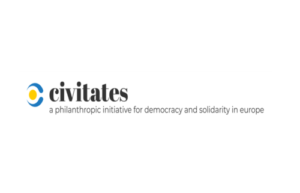 Attacks on civil society take myriad forms, from legal and regulatory measures to physical harassment, and usually include efforts to delegitimize civil society, note analysts SASKIA BRECHENMACHER and THOMAS CAROTHERS. Governments engaged in closing civil society spaces not only target specific civic groups but also spread doubt about the legitimacy of the very idea of an autonomous civic sphere that can activate and channel citizens’ interests and demands. These legitimacy attacks typically revolve around four arguments or accusations, they write in the latest of a series for Carnegie’s Civic Research Network:
Attacks on civil society take myriad forms, from legal and regulatory measures to physical harassment, and usually include efforts to delegitimize civil society, note analysts SASKIA BRECHENMACHER and THOMAS CAROTHERS. Governments engaged in closing civil society spaces not only target specific civic groups but also spread doubt about the legitimacy of the very idea of an autonomous civic sphere that can activate and channel citizens’ interests and demands. These legitimacy attacks typically revolve around four arguments or accusations, they write in the latest of a series for Carnegie’s Civic Research Network:
- That civil society organizations are self-appointed rather than elected, and thus do not represent the popular will. For example, the Hungarian government justified new restrictions on foreign-funded civil society organizations by arguing that “society is represented by the elected governments and elected politicians, and no one voted for a single civil organization.”
- That civil society organizations receiving foreign funding are accountable to external rather than domestic constituencies, and advance foreign rather than local agendas. In India, for example, the Modi government has denounced foreign-funded environmental NGOs as “anti-national,” echoing similar accusations in Egypt, Macedonia, Romania, Turkey, and elsewhere.
- That civil society groups are partisan political actors disguised as nonpartisan civic actors: political wolves in citizen sheep’s clothing. Governments denounce both the goals and methods of civic groups as being illegitimately political, and hold up any contacts between civic groups and opposition parties as proof of the accusation.
- That civil society groups are elite actors who are not representative of the people they claim to represent. Critics point to the foreign education backgrounds, high salaries, and frequent foreign travel of civic activists to portray them as out of touch with the concerns of ordinary citizens and only working to perpetuate their own privileged lifestyle.
 Visegrad/Insight interviewed Stefan Schäfers, Head of European Affairs for the King Baudouin Foundation (KBF), about the institution’s new strategy to combat the issues facing modern democracies.
Visegrad/Insight interviewed Stefan Schäfers, Head of European Affairs for the King Baudouin Foundation (KBF), about the institution’s new strategy to combat the issues facing modern democracies.
“Through our first call for proposals, launched on the 3rd of May, 2018, Civitates wants to foster coalition building among civil society organisations to build strong national coalitions of actors in countries that will be active in ‘fighting back’ where the space for civil society is threatened,” he said. “It is also a way to reaffirm the legitimacy and embedded status of civil society in democratic systems.”
 Multiple strategies exist for civic actors seeking to build legitimacy or defend it in the face of attacks by hostile governments or other actors. Not all of the strategies are available or feasible in every context. None of the available strategies is a silver bullet, Brechenmacher and Carothers add:
Multiple strategies exist for civic actors seeking to build legitimacy or defend it in the face of attacks by hostile governments or other actors. Not all of the strategies are available or feasible in every context. None of the available strategies is a silver bullet, Brechenmacher and Carothers add:
But it is important for all civic actors to assess their legitimacy vulnerabilities carefully and think through the full range of possible actions they can take either to build legitimacy before attacks come or to respond effectively if attacks are already underway. Given that the punishing global wave of attacks on civil society legitimacy grows out of larger changes in power relations and patterns of domestic governance that are likely to define the international landscape for the foreseeable future, the legitimacy challenge is here to stay.







